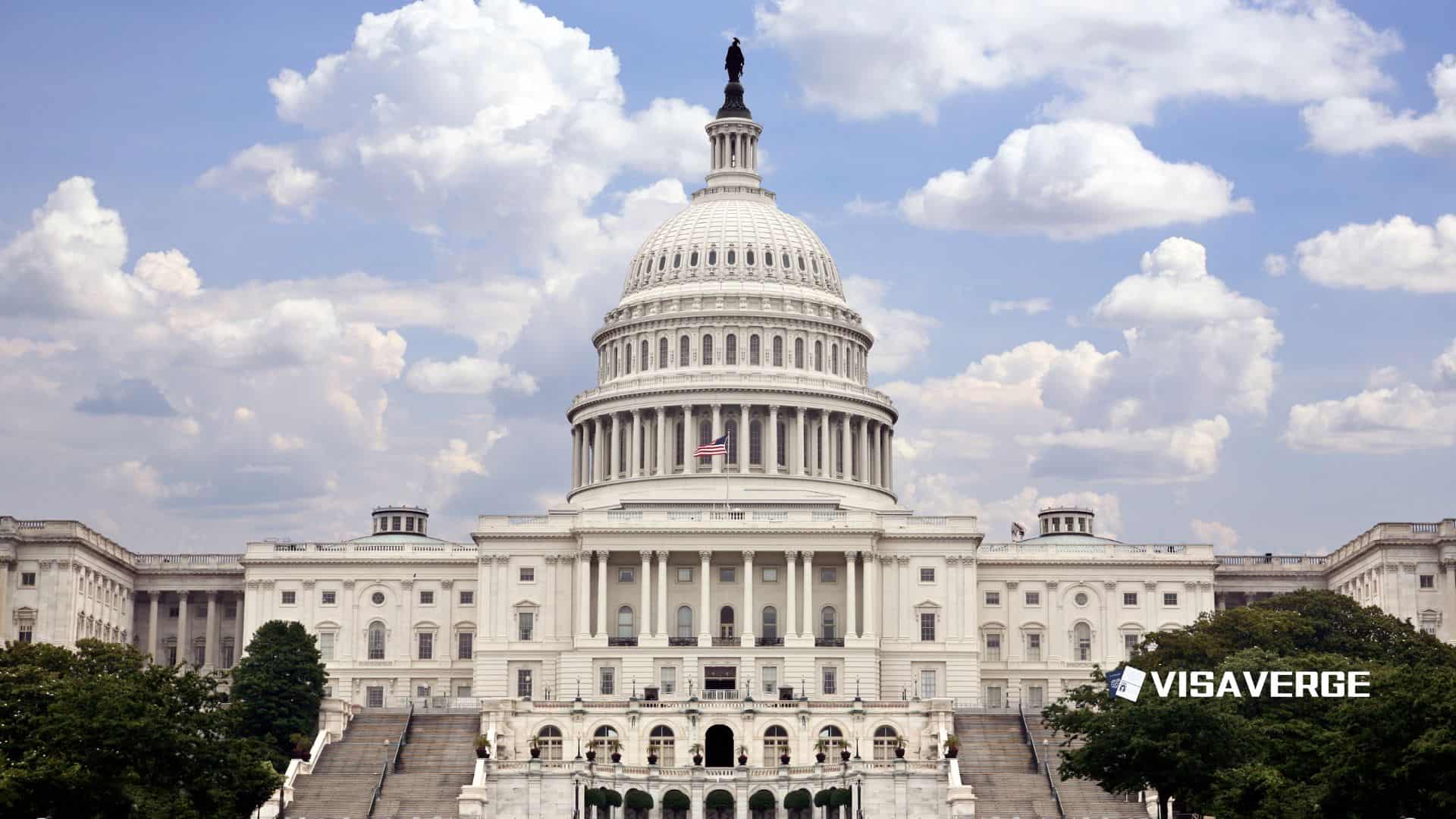Key Takeaways
• USDA and DOGE ordered all states to share detailed SNAP recipient data, including Social Security numbers and citizenship, starting May 6, 2025.
• Executive Order 14243 requires centralized federal access to sensitive information to combat waste, fraud, and abuse in SNAP distribution.
• Privacy advocates and immigrant groups fear the new policy may deter eligible families from applying for SNAP due to increased data sharing.
The U.S. Department of Agriculture (USDA) and the Department of Justice (DOGE) have recently told all states across the United States 🇺🇸 to hand over a much deeper set of personal information about people who receive SNAP benefits, also known as food stamps. This major new rule asks states for not only the basic information they already collect but also more details like Social Security numbers, home addresses, and citizenship status. The order is backed by President Trump’s 2025 Executive Order 14243, called “Stopping Waste, Fraud, and Abuse by Eliminating Information Silos.” The idea is to make it easier for federal officials to check who gets help from SNAP and to strengthen the system against fraud, but these changes are causing strong concerns among privacy advocates, community groups, and immigrant families.
USDA and DOGE Order States to Share SNAP Recipient Data

On May 6, 2025, Secretary Rollins at the USDA announced that all state SNAP agencies must now send a full range of sensitive data on food stamp recipients to federal authorities. This includes not only the information used to check if someone qualifies for SNAP, but new categories too—like citizenship details. According to the USDA’s official statement, the goal is to make sure the federal money given to states and families is used correctly and efficiently.
This action doesn’t just apply to a few states—it’s a nationwide order covering millions of food stamp recipients. Analysis from VisaVerge.com suggests that this is one of the largest requests ever made for personal public assistance data from state governments.
What Data Are States Required to Share?
The categories of data the USDA and DOGE are demanding from states go well beyond regular program management. States are being required to send:
- The full names of all food stamp recipients
– Social Security numbers - Residential addresses
- Citizenship status (in at least one state, by direct request)
- Any other records tied to SNAP eligibility that may be stored with state agencies or their partners, such as Electronic Benefits Transfer (EBT) processors
In the past, most of this information was stored by the individual states and only shared with the federal government when needed for specific reasons. Now, federal agencies want real-time or regular access to this information for everyone who gets SNAP benefits.
The Reason for the Federal Request
Explaining the new policy, Secretary Rollins said, “The Department is focused on appropriate and lawful participation in SNAP, and today’s request is one of many steps to ensure SNAP is preserved for only those eligible.” This statement makes it clear that the USDA leadership wants to step up efforts to watch who gets help so that only those who qualify stay in the program.
President Trump’s executive order gives more details about the reason for this change. Under Executive Order 14243, the federal government says it needs to break down data “silos.” In simpler terms, information about public benefit recipients should no longer be locked away in separate state systems. Instead, the federal government wants one system that lets officials see, check, or compare data from many sources right away. The USDA says this approach will help prevent waste, stop fraud, and find any mistakes in how benefits are given out.
The DOGE, working alongside the USDA, is involved to help with any criminal investigations that come from the information. The thinking is that with more complete data, law enforcement can more quickly find cases where SNAP benefits are going to people who aren’t legally allowed to receive them.
Backdrop: How SNAP and Eligibility Rules Work
Most people in the United States 🇺🇸 have heard of SNAP (the Supplemental Nutrition Assistance Program) as “food stamps.” The USDA runs the program but states mostly decide who gets help. People receive EBT cards that work like debit cards to buy groceries, and the money comes from the federal government.
Not everyone can get SNAP. People must meet strict eligibility rules set out by the USDA, which include income limits, family size, and, importantly, citizenship or legal residency requirements. Most U.S. citizens and some lawful immigrants can get SNAP, but undocumented people cannot get food stamps for themselves. However, families with a mix of immigration statuses are often eligible if, for example, one parent is undocumented but their children are U.S. citizens or green card holders.
This mix—where parents apply for their American-born children—creates anxiety about sharing citizenship information widely. Many fear that new federal access to this information could put undocumented family members at risk, even if they themselves are not getting help directly.
Privacy, Immigrant Rights, and Public Outcry
The response from community leaders, privacy advocates, and immigration attorneys has been strong. Many say the USDA and DOGE request is too broad, risks people’s privacy, and may make families afraid to ask for help—even when their children desperately need food.
John Davisson from the Electronic Privacy Information Center, which fights for data security and civil rights, called these new requirements “absolutely alarming” and “reckless.” He warned, “This expansion of government demand for personal data happens without any clear evidence that it will stop improper payments.”
Privacy groups also point to the Privacy Act, a federal law designed to protect the personal information held by government agencies. Critics argue that gathering and sharing Social Security numbers, citizenship data, and home addresses for all food stamp recipients could break promises in this law—even when the stated goal is to stop fraud.
The American Civil Liberties Union and other policy groups worry that sharing citizenship and immigration status with federal agencies opens the door for using SNAP information to do immigration enforcement or even broader government surveillance. There is a real concern among mixed-status families (those where some members have legal status and others do not) that seeking help could get them or their loved ones in trouble—even though the law currently says undocumented people cannot get SNAP themselves.
Chilling Effect: Impact on Families and Food Security
One of the biggest worries is that this policy could scare off many people who are legally eligible for food stamps, especially in immigrant families. During earlier times when immigration enforcement was stepped up, such as in 2017 and 2018, community groups saw a big drop in the number of immigrant families applying for food assistance, even for their citizen children, because parents were afraid the information could lead to trouble with immigration officers.
Advocates and local workers fear a repeat. If families stop asking for help, more children could go hungry or miss out on food because parents are scared about what will happen with their data. Some experts predict this “chilling effect” could also make the U.S. government’s food security goals harder to reach.
Arguments in Favor of the New Process
Supporters of the new data-sharing rules say this extra oversight is badly needed to keep the SNAP program honest and stop cheats from taking advantage of taxpayer-funded assistance. For many years, critics have argued that loopholes in eligibility checks, fraud by dishonest recipients, and the lack of close data matching across states and agencies have led to billions of dollars in losses.
By having state programs open their records, the USDA and DOGE believe they will catch more mistakes (like people getting benefits in two states at once) and quickly spot those who are not honest about their situation. They also say that this policy is in line with President Trump’s pledges to enforce rules for all federal programs.
Possible Risks and Legal Questions
However, the legal risks of this order are real. Many lawyers expect that some states, advocacy groups, or affected individuals may try to challenge the order in court. They could argue that the federal government is asking for more personal data than is necessary—or that it could open the door to actions against people who fear government attention.
State officials are in a tough spot. They are caught between strict rules from the USDA (which holds the SNAP purse strings) and concerns about what will happen to their own residents if full data is turned over.
The Role of the USDA and DOGE
The USDA is the main agency overseeing SNAP distribution and compliance. Its job is to make sure federal money is spent properly and that all rules are followed across every state. The DOGE, or Department of Justice, often steps in to help look into and bring charges in SNAP fraud cases.
In this new system, states not only report to the USDA but must potentially prepare to hand data to DOGE investigators and attorneys. This could mean more people with SNAP benefits are checked for citizenship and immigration status, even when they are eligible.
For food stamp recipients, this means their personal information could now be shared much more widely and with more agencies than before. Immigrant advocates say this is especially dangerous for mixed-status households—places where at least some family members lack legal immigration status.
Broader Context: Public Benefits and Data Use
The U.S. has a history of privacy protections in its social service programs. In most cases, people applying for food stamps or other help are told their personal information will only be used for deciding if they are eligible. Further sharing with law enforcement or immigration wasn’t a regular part of the deal.
This new rule changes that understanding. Even though the USDA promises it will only use the data for checking program honesty, there are worries that once information is collected and shared, it could be used for other government purposes, too.
What Should Food Stamp Recipients Know?
If you or someone you know receives food stamps, it’s important to know:
- The USDA now wants states to provide a wider set of your personal records to federal agencies.
- This includes name, Social Security number, home address, and citizenship status.
- If you are applying for yourself or your children, you must still answer all program questions truthfully.
- Changes to how this information is used could affect your privacy and how comfortable families feel when signing up for SNAP.
If you need more information about your rights or the details of SNAP eligibility, you can visit the USDA’s SNAP page, which has guidance for applicants and current recipients.
Next Steps and What Comes Next
This sweeping request for food stamp recipients’ data from the USDA and DOGE is almost certain to lead to more debate, new legal fights, and ongoing confusion among families and the states themselves. Some states may push back or ask for changes in how data is handled. National privacy and immigrant rights groups say they will keep fighting to protect families’ sensitive data and make sure programs stay accessible to all who need them.
For now, it’s important that everyone receiving food stamps, or thinking about applying, pays close attention to government updates, reviews all program materials carefully, and knows that legal aid groups are watching this issue closely. The final impact will depend on how the USDA, DOGE, and the states move forward, how courts rule on privacy challenges, and whether Congress steps in to clarify how public assistance data can be used.
The future for food stamp recipients in the United States 🇺🇸 is filled with both hope for a cleaner, fairer program and worry about how far the government might go in collecting and using sensitive personal information. The actions taken by the USDA and DOGE will shape not only access to SNAP but also the relationship between public benefits and privacy for years to come.
Learn Today
SNAP → Supplemental Nutrition Assistance Program, a federal food assistance program known as food stamps, administered by the USDA.
Executive Order 14243 → A 2025 directive from President Trump mandating broader federal access to state-collected data for anti-fraud purposes.
EBT (Electronic Benefits Transfer) → A payment system enabling recipients to access food benefits using cards similar to debit cards.
Mixed-status family → A household with members who have different immigration statuses, such as undocumented parents and citizen or resident children.
Privacy Act → A federal law that governs how government agencies collect, use, and disclose personal information.
This Article in a Nutshell
The USDA and DOGE now require all states to send detailed SNAP recipient data—names, Social Security numbers, addresses, and citizenship—to federal agencies. Backed by Trump’s 2025 Executive Order 14243, this aims to prevent fraud but sparks privacy anxieties, especially for immigrant families, and could reduce program participation nationwide.
— By VisaVerge.com
Read more:
• Portugal healthcare system tops United States in key outcomes
• Sweden sets the standard in work-life balance over United States
• Portugal salaries trail far behind United States for similar jobs
• Gulf Air to resume United States flights after nearly 30 years
• Average Salary in Portugal Lags Behind United States for 2025







